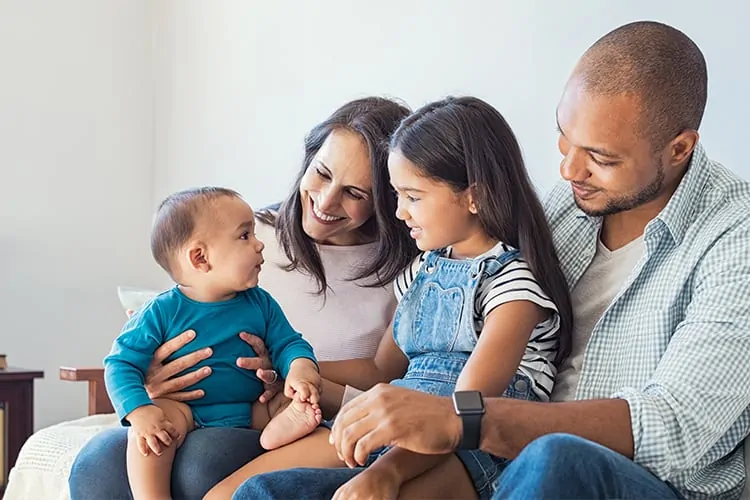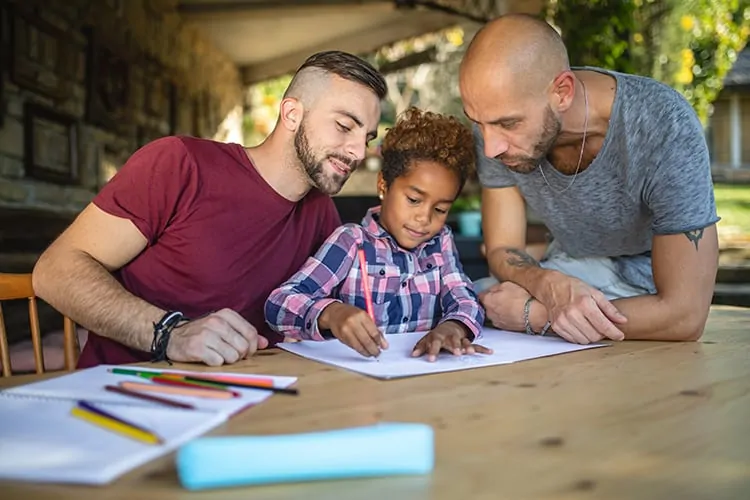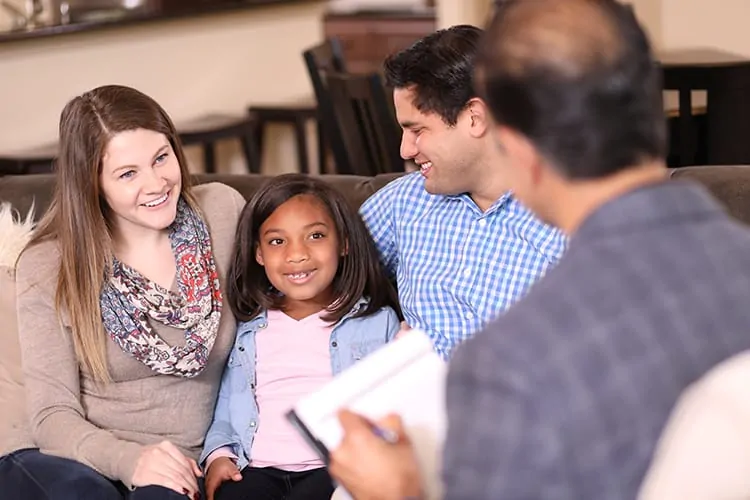If you a considering adopting a child, there may be several different aspects to consider. In the following, you will learn more about types of adoption, what to expect in the process, the support you need, and much more.
There are many different approaches to adoption, depending on which country you live in, but many of the core things to think about are similar. So instead of focusing on the processes involved, here you can read some pointers to help you decide whether it’s something you want to explore further. This will only cover ‘stranger’ adoption, not adoption by step parents or family members.

It’s a different way to form your family
Maybe one of the easiest ways to think about adoption is that it’s there to provide a family to a child who’s already born, whereas fertility treatments are there to help you, to become a parent. It’s a subtle but important difference so the professionals involved have very different starting points. Fertility professionals’ primary responsibility is to you; adoption professionals’ primary responsibility is to the child awaiting adoption.
Not only will an adopted child have no genetic link to you (which can also be true if you use donated gametes of course) but you will usually only get to know about them once they’re already born. And sometimes not till several years later. In many countries, most adopted children come from the care system (children’s homes; foster homes), will have experienced neglect, physical, sexual or emotional abuse or other trauma and may have had a lot of disruption in their lives. Although love, consistency and security can heal some
of their wounds, sadly some adopted children will never fully recover. Even those adopted as babies come with a history that cannot always be fully overcome. And all adopted people have to cope with knowing that their birth parents were not able to raise them themselves. Although we may like to think that nurture is always a more important influence than nature, the two each play a part in shaping all of us.
There’s a lot to be said for reading accounts by adoptive parents of their experiences and reading stories written by adopted children and adults themselves and imagining what it would be like for you in their shoes.
What sorts of children are waiting to be adopted?
Like children everywhere, adopted children come in all shapes and sizes! The number of babies for adoption is relatively small and although many will be under 5, there are children of all ages needing a permanent home. Sometimes agencies are looking for homes for sibling groups and children with additional needs or someone with a different ethnicity to their own.
For a small number of children, there may be some ongoing contact with members of their birth family. For others, you may be asked to swop updates with birth relatives from time to time through the adoption agency. For some there will be no contact at all. But part of your job as an adoptive parent will be to make sure your child knows about their background, be ready to answer their questions and help them with their feelings.

Types of adoption
Just as there are different laws around the world relating to the use of fertility treatments, so do laws differ on adoption.
- Some countries only allow ‘open’ adoptions – where the adopted person has the right to access information about their origins, including the identity of birth parents (though the age at which they can do that may differ). Here, adoptive parents often see the child’s birth certificate when they submit their adoption order application to court.
- Some countries only allow ‘closed’ or ‘sealed records’ adoptions – where neither the adopted person nor their adoptive parents have the legal right at any stage to identifying information about the birth parents (though of course commercial DNA testing can now circumvent that).
- Some countries allow both ‘open’ and ‘closed’ adoptions.
- Some countries don’t allow any money to change hands, including of payments to adoption agencies, but others do.
- Some countries expect prospective adopters to hire their own lawyer; other countries either don’t allow or don’t encourage that.
In many countries, the majority of adoptions involve children born in the same country as the adopters; sometimes called ‘domestic’ adoption. But some adoptions involve the adopters travelling overseas (often to a ‘developing country’); sometimes called ‘international’ adoption. Usually the laws and processes involved differ according to where the child was born.
How do I choose an adoption agency?
Various factors may influence your decision but here are just a few. Is it sufficiently close to make attendance at preparation meetings easy? Does it have children (or family groups) on its books currently with the sort of age and background that you’re interested in or good links with organisations that do? Does it provide as full information as possible about the child? Does it provide post adoption support if it’s needed? How long on average does it take for it to complete the assessment and preparation process?
What can I expect in terms of assessment and preparation – and why is it needed?
Because of the additional parenting input that adopted children may need, adoption agencies need to be sure that you’re ready to take this on. After all, the last thing that they, you and, most importantly, the child want is for an adoption to fail.


You can expect agencies to do background checks on you, get personal references, ask about your own childhood and background and how you’ve coped with any difficulties, and ask about your support networks. What you can expect from them is to be filled in on what to expect from any children you adopt including what is known currently about the long term effects of physical neglect, sexual abuse, or substance abuse on children – and what is not yet known. Research is still evolving, so you will always have to cope with a level of uncertainty
What are the main differences between being an adoptive parent and one as a result of fertility treatment?
Being a parent is being a parent! There are many common jobs that come with the role and many shared joys and challenges regardless of whether you’re a parent through adoption or not. But being an adopted parent brings additional tasks so you’ll need to check out whether you feel you could manage them, such as:
- Coping with a child with whom you’ve not experienced pregnancy, birth and maybe the early years
- Caring for a child who may develop behaviours which you find very challenging
- Helping a child to understand and cope with distressing information about the reasons why they were adopted – openness is crucial so that there are no hidden secrets to emerge later. But telling a child that their parent sexually abused them for example, or that they were the result of rape is not easy
- Accepting a child whose personality and looks may be very different to anyone else in your family
- Helping a child later seek out their birth relatives, if they wish
Why shouldn’t I apply for adoption at the same time as having fertility treatment?
You may think that you can cope with going down both routes at the same time, especially if you are worried that the clock is ticking. You may truly believe that you would not pull out of adoption if you got pregnant through fertility treatment.
Looked at through the adoption professionals’ eyes, they do not want to invest their time in you or raise a child’s hopes only for it to come to nothing.
Also, their experiences and findings from research indicate that people can’t really clear their minds and emotions enough to get to grips with thinking about adoption if they’re still holding out the hope of having a baby through fertility treatment. It’s important for adoption to have moved into first place before you start the process.
Of course, that doesn’t stop you exploring adoption more fully while you’re having treatment – but you’re strongly advised not to embark on an assessment process then. Indeed, some adoption agencies will not accept you onto their programmes until treatment is ended.
What supports do adoptive families need?
Some adoptive families need little support; others need a lot; and some only need help at particular life stages. Of course, you won’t necessarily know at the start whether you’ll need help. So, it’s worth checking out what type of post adoption support might be available from the agency through which you adopt your child, or in your area.
Pulling all this together
Being an adoptive parent can be a hugely rewarding experience but it’s not something to be entered into lightly and it’s not for everyone. So, take your time, be honest with yourself about the pluses and minuses of raising a child with their own unique pre-history, make sure you access really good preparation and use whatever support is available afterwards. All will stand you in good stead.
Here you can read a personal story about fertility treatment, adoption and family.



